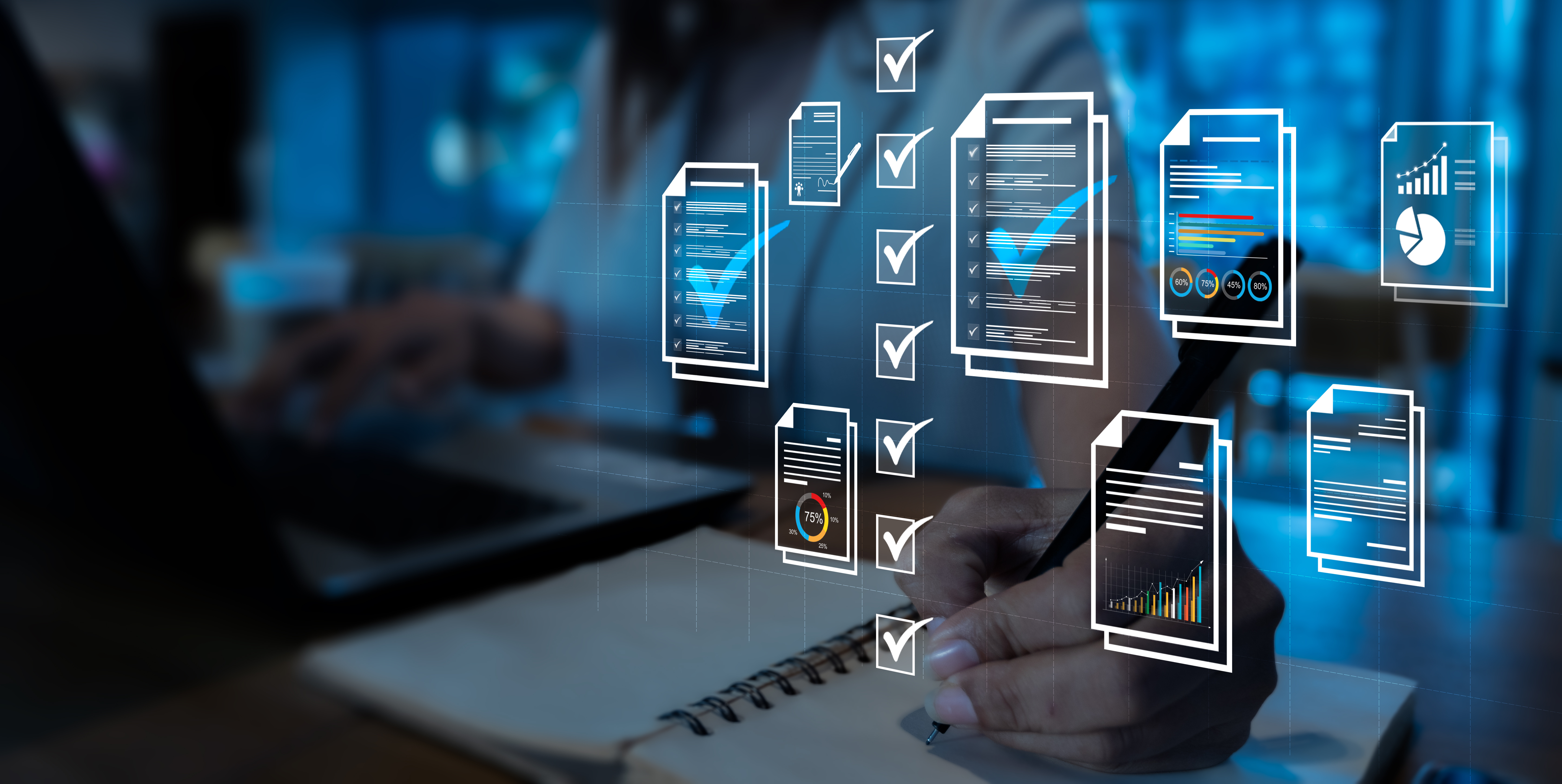The Essential Guide to Cybersecurity for SMBs
One in three SMBs falls victim to cyberattacks due to limited resources and expertise. Discover practical tips to boost cybersecurity for SMBs.
Cybercriminals target all organizations, yet small and medium-sized businesses (SMBs) and solopreneurs with tight cash flow are the most vulnerable. Thus, cybersecurity for SMBs is an issue of paramount importance. Research shows that 31% of SMBs have been victims of cyberattacks such as ransomware, phishing, or data breaches. Most SMBs lack sufficient resources, tools, and technologies to detect and respond to cybersecurity incidents. Despite this, many still hold misconceptions, such as believing they are 'too small to be targeted by criminals,' which increases their risk of experiencing data incidents or malicious events.
Microsoft highlights the following 7 key cybersecurity trends for SMBs that
- 1 in 3 experienced a cyberattack;
- the average cost of cyberattacks is over $250K
- 94% consider cybersecurity is critical for their business
- less than 30% manage their cybersecurity in-house
- 80% are intended to increase their cybersecurity spending
These trends emphasize the importance of cybersecurity for SMBs, encouraging business owners to reassess their cybersecurity measures. This guide is designed to help SMBs navigate the challenging cybersecurity landscape. By focusing on smart resource allocation and leveraging third-party tools and services, we’ll offer practical advice to strengthen your SMB’s defenses against cyber threats.
Continue reading and see how Planet 9 can help SMBs with their cybersecurity and compliance issues.
Why Cybercriminals Target SMBs
Cybersecurity is a top concern for SMBs, with 60% of small businesses citing threats like phishing, malware, and ransomware as primary risks. The other concerns include insider threats and cloud computing vulnerabilities. One of the major mistakes SMBs make on the way to cybersecurity is assuming they won’t be targeted. The mindset “we are too small to attract cybercriminals” only makes them more vulnerable. Here is a list of other important factors that make SMBs more attractive targets for cybercriminals.
First, SMBs often lack the resources and expertise to implement extensive security measures or manage complex security solutions. Business owners wear too many hats to keep track of the latest software updates, research the best monitoring tools, or keep updated with recent regulatory requirements. At first glance, this lack of resources would make SMBs unattractive targets for criminals seeking financial gain. However, rather than attack large enterpriseі for a single big payout, attackers increasingly target multiple small businesses, allowing them to accumulate substantial profits.
Second, some adversaries target SMBs because they are weak links in the supply chain that can be exploited to access larger organizations. Compromising an SMB’s systems may enable an attacker to infiltrate a more valuable business, a tactic seen in the 2020 Solar Winds data breach. In this case, the attackers inserted a backdoor called SUNBURST into the Orion IT update tool, which was subsequently downloaded by 18,000 customers.
Finally, the SMBs often lack cybersecurity policies, technologies, and processes. Without clear guidelines on password management, data protection, or device security, employees might adopt unsafe practices that expose the business to greater risk.
Core Cybersecurity Challenges for SMBs
SMBs are often unprepared for the main cyber challenges they face. Only 17% of SMBs consider their cybersecurity skills "effective" or "somewhat effective," while 55% view them as "ineffective." See the core cybersecurity challenges for SMBs and affordable services to cope with them below.
Budget Constraints
Most SMBs lack budgets for preventing, investigating, and responding to cybersecurity incidents. The average cost of cyberattacks in SMBs ranges from $250K to $7M. These costs can include expenses incurred for investigation and recovery efforts to resolve the incident, as well as associated fines related to a data breach. Cyberattacks not only present an immediate financial strain but can also have longer-term impacts on an SMB. Diminished customer trust due to a cyberattack can cause broader reputational damage and lead to missed business opportunities in the future.
How to address:
SMBs can conduct cybersecurity risk assessments to understand gaps in security and determine steps to resolve them. These assessments can help SMBs uncover their key vulnerabilities, ensure compliance with regulatory requirements, establish incident response plans, and more. Proactive risk assessment and planning can help minimize the financial, reputational, and operational costs associated with a cyberattack should one happen. Working with an experienced cybersecurity consulting firm brings additional expertise and guidance through the process as needed.
Lack of In-House Expertise
SMBs are disproportionately impacted by the increasing cybersecurity skills gap. Sophos reveals that organizations with fewer than 500 employees perceive a shortage of in-house cybersecurity skills/expertise as their second biggest single cybersecurity risk. Along with skills shortage, SMBs face a lack of capacity. Adversaries don’t work a 9-5 but can strike every minute, making cybersecurity a round-the-clock requirement. 24/7 protection generally requires a team of four to five full-time professionals to manage shifts, vacations, and sick days - an unachievable luxury for many SMBs. In fact, one-third (33%) of the time, SMBs have no one actively monitoring, investigating, and responding to alerts. Without an active responder, smaller organizations are widely exposed to attacks.
How to address:
Engaging third-party cybersecurity specialists is often the most cost-effective way to boost expertise and capacity. The two most common options are managed service providers (MSPs) and CISO-as-a-Service. The third-party experts typically provide a round–clock threat hunting, detection, and response monitoring your organization’s environment on your behalf. CISOs can help organizations develop and implement (or improve existing) information security and compliance programs, conduct security risk assessments and compliance evaluations, manage security teams, and perform other responsibilities.
Compliance issues
Navigating the landscape of cybersecurity regulations (e.g., HIPAA, PCI DSS) is often an unbearable burden for SMBs. While they face all the same legal requirements as large businesses, they often lack resources and staff to manage compliance properly. At the same time, non-compliance can result in costly fines, penalties, and even legal action, which are particularly damaging to SMBs. Many SMBs may not fully realize the severity of these consequences, leading to underinvestment in compliance and, ultimately, financial or reputational harm if breaches occur.
How to address:
Third-party compliance consultants for SMBs can ease compliance challenges. They provide expert guidance on complex regulations like HIPAA, PCI DSS, helping businesses understand and implement necessary security measures, conduct compliance audits, or address compliance gaps. They deliver personalized compliance solutions, which encompass risk assessments, policy development, and ongoing audits, allowing SMBs to fulfill their obligations without straining their resources.
Best Practices for SMBs Cybersecurity
While 80% of SMBs consider themselves well protected, less than 60% employ essential security measures like password managers, two-factor authentication, or cybersecurity training. This disconnect between perception and reality can be a dangerous blind spot. Let’s see what are the best practices for SMBs cybersecurity:
Train employees
Employees can leave businesses of all sizes vulnerable to cyber incidents. There are many scenarios that could result in employee-initiated attacks. For instance, users can mistakenly open fraudulent emails, which can deploy viruses on your business’ network. To protect against threats from within, SMBs should invest in cybersecurity training for their employees. For example, teach staff the importance of using strong passwords and how to spot phishing emails.
Conduct security risk assessments
Evaluate potential risks that might compromise the security of SMB networks, systems, and information. As part of the risk assessment, businesses determine the main threats to sensitive data and detect system vulnerabilities. It also helps establish the risk levels of possible events and determine how breaches could potentially impact your company. The risk assessment results are then used to develop or refine organizations’ security strategy. Reviewing and updating this strategy regularly and whenever any changes were made to information storage and usage ensures sensitive data is always protected to the best of your ability.
Deploy antivirus software
Choose antivirus software that can protect devices from viruses, spyware, ransomware, and phishing scams. Make sure the software not only offers malware detection, but also technology that helps you clean devices as needed and resets them to their pre-infected state. It’s important to keep antivirus updates to stay safe from the latest cyber threats and patch any vulnerabilities.
Keep software updated
Software updates are essential for SMBs as they bolster security and enhance performance. For instance, a recent update for popular accounting software fixed a critical vulnerability that could allow cybercriminals to access sensitive financial data. Establishing a consistent update schedule helps prioritize these crucial patches. Also, receiving notifications from vendors on emergency patches for critical vulnerabilities is critical as these need to be addressed ASAP.
Back up sensitive data regularly
If a cyberattack happens, data could be compromised or deleted. To help, make use of a backup program that automatically copies sensitive data and files to secure storage. This would help to restore all data in the event of an attack. Consider using special software that schedules or automates the backup process so you can avoid costly on-site backup and minimize human error. Businesses should store copies of backups in a separate logical or physical location so they do not become affected by the same attack.
Encrypt key information
Implementing an encryption program is essential if your business frequently handles sensitive information, such as personal data, healthcare records, credit card details, and bank account information. Encryption protects data by converting it into unreadable code, ensuring its safety.
This approach is based on a worst-case scenario: if data is stolen, it becomes worthless to hackers who lack the decryption keys to access the information. This is a wise security measure given the billions of records compromised each year.
Implements strong access controls
Ensure that all employees use a strong password on all devices and applications that contain sensitive information. A strong password is at least 12 characters in length and contains a mix of upper- and lower-case letters, numbers, and symbols. The more difficult it is to crack a password, the less likely a brute-force attack will be successful. As an additional measure, small businesses should enable multi-factor authentication (MFA) on employees' devices and apps. Finally, set out a plan that outlines which individuals have access to certain levels of information so that roles and accountability are clear to all involved.
Engage a Third-Party Cybersecurity Consultant
Partner with third-party cybersecurity and compliance firms such as Planet 9 or managed security service providers (MSSPs) to evaluate your current security posture, identify vulnerabilities, and ensure regulatory compliance. Bring in a part-time or contract virtual Chief Information Security Officer (vCISO) to provide strategic guidance and oversight, helping to shape the organization’s security posture. vCISO is a great solution for SMBs as it leads their cybersecurity operations, aligns their business goals, and promotes a security awareness culture.
Planet 9 can help secure your business and save money by delivering practical information security and compliance programs, security risk assessments, compliance evaluation, and certification readiness. Our expertise and experience will help your business to mitigate the need to recruit and retain expensive staff.
Book a free consultation to learn more or contact the Planet 9 team for help with your security and compliance challenges. We’ll be happy to assist!







